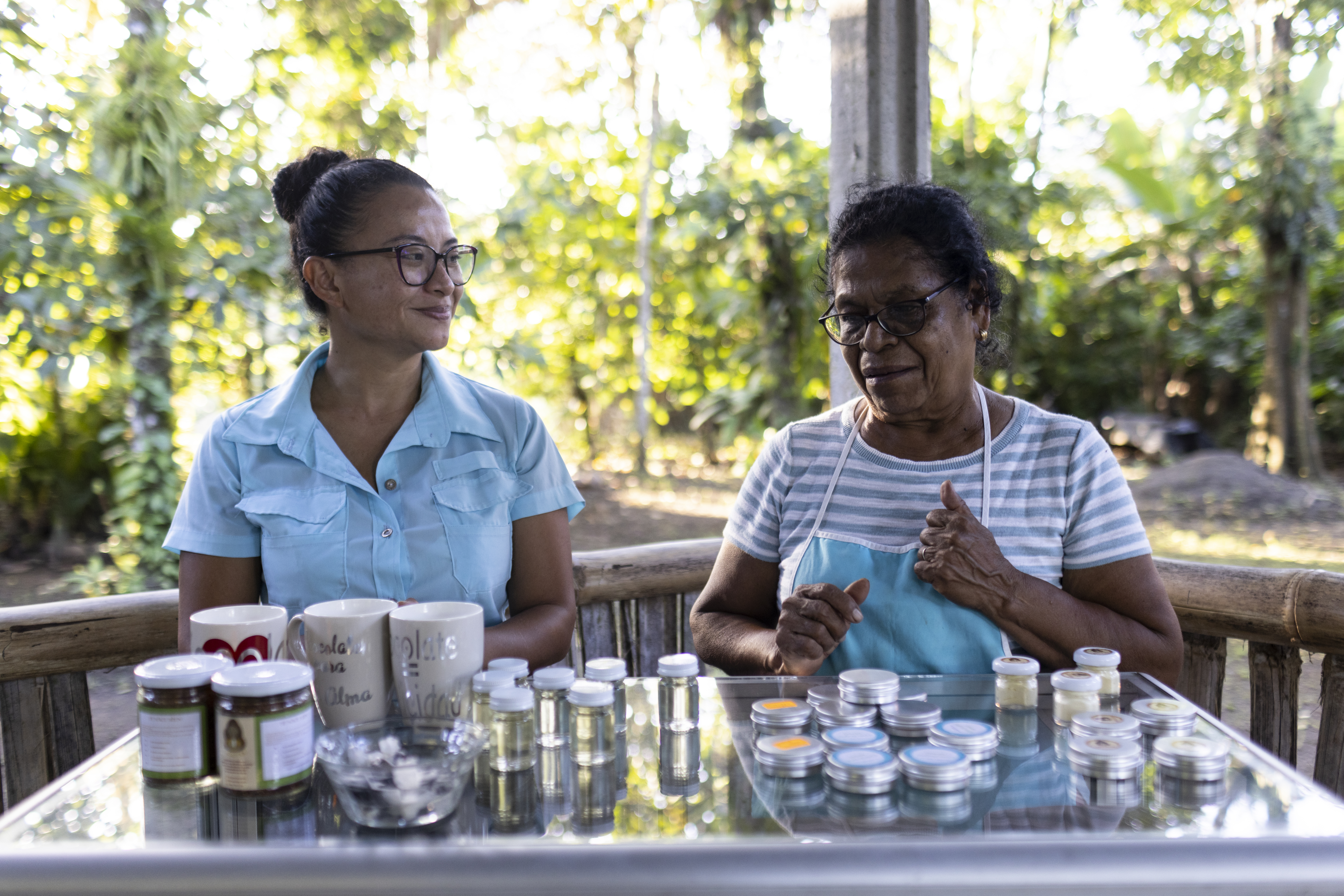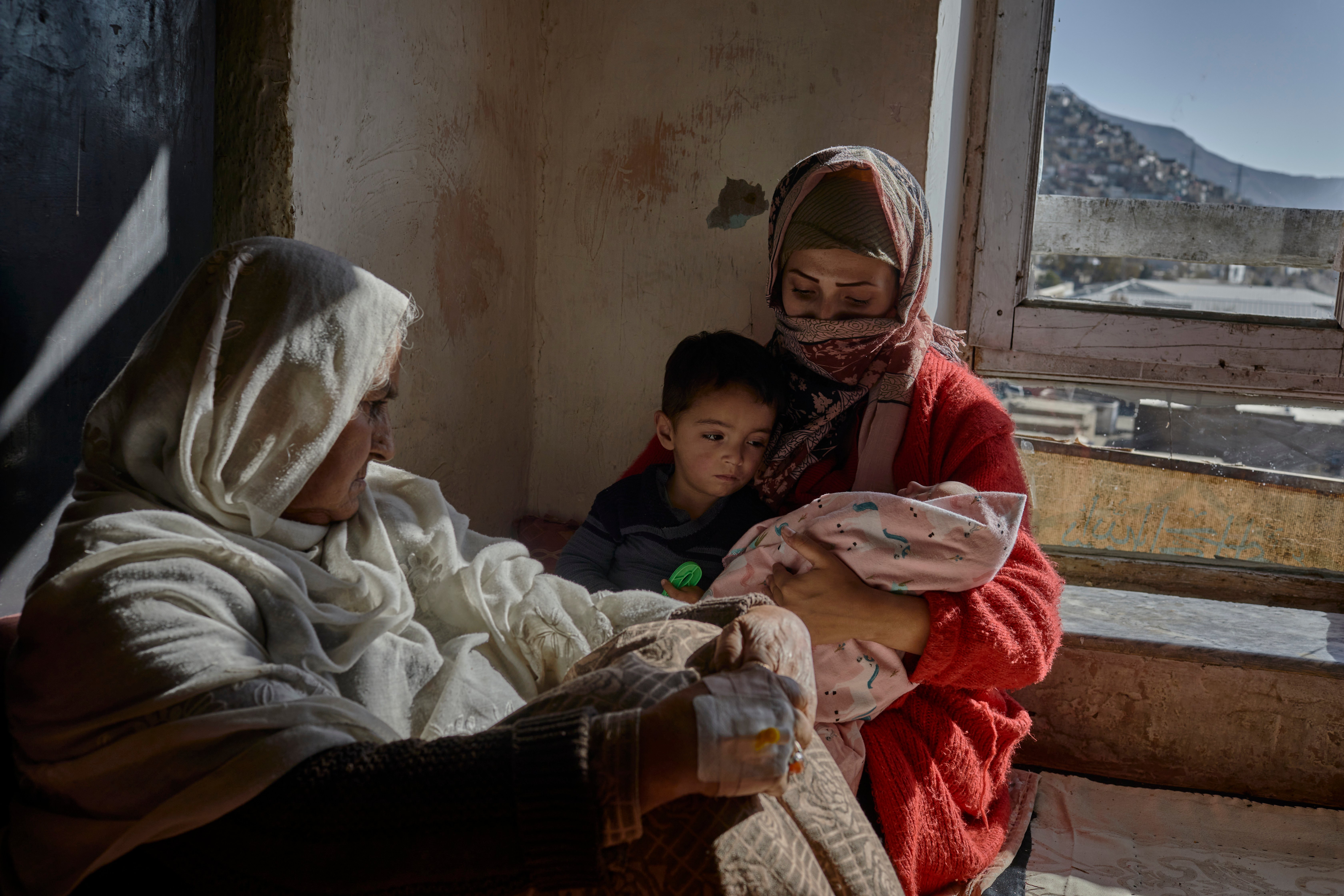Abducted mum finally finds safety in Finland, but yearns to see children again

Abducted mum finally finds safety in Finland, but yearns to see children again
Nakout sits at a kitchen table in Finland, pen in hand, pondering what to write to the daughter she has not seen for more than 15 years. Her phone is beside her, to help check spelling. Her daughter and two sons are in Uganda, 7,000 kilometres away.
“Hello my lovely only daughter,” she writes in well-spaced blue pen. “Be strong, mummy loves you so much. You have to talk to mummy, please.”
Nakout once lived with her husband Akollo and three young children on the outskirts of Soroti, a small, quiet town in eastern Uganda.
Akollo built their home out of mud and sticks, with a corrugated iron roof. They would argue about football or the usual household things, but life was good.
“Watching Arsenal play was a highlight of her 'old' life.”
When she had spare money, Nakout would don her prized Arsenal soccer jersey and head to the local bar to watch a match with other fans over a few beers.
Then life changed – forever.
One night in October 2003, at around midnight, the front door of their small house was suddenly kicked in by armed men from one of Africa’s most brutal rebel groups, the Lord’s Resistance Army (LRA).
The soldiers bound Akollo’s arms behind his back. They then executed him with a machete.
Nakout’s baby daughter, Ruth, was wrenched from her back and thrown against their house. Her two sons, Baker and Joseph, hid under the bed. Nakout was marched off into the darkness. Life stopped.
Joseph Kony founded the LRA in 1986 with the professed goal of governing Uganda according to his version of the Bible’s Ten Commandments.
In reality, the group was little more than a bunch of marauding bandits with a creative taste for cruelty and a reputation for abducting tens of thousands of children.
Nakout spent the next dozen years as a sex slave, roaming the remote borderlands of central Africa.
Unable to contact her family, Nakout discovered that the only way to survive the sexual abuse and long marches was to take leave of her emotions, to put them on ice, and abandon the thought of ever seeing her children again.
On several occasions she was forced to take part in occult ceremonies, a central part of Kony’s gruesome brand of mysticism.
Had she refused, she would have been killed. Ultra-violence, sexual abuse, assault and death became a part of everyday life.
During her enslavement, she witnessed brutal attacks on LRA victims and fell sick herself.
- See also: Nakout’s great escape
She herself became a favourite play thing of Kony, the group’s enigmatic leader, eventually bearing him a child. He named the child Joseph Kony, like the dozens of other boys sired by him. Soon after his birth, her son was taken away. She never saw him again.
“I was taken when you were seven months old,” Nakout writes to her daughter. “Captured in the bush for 12 years, I managed to escape to Europe and am now safe, living in Finland.”
Having secured residency in April, Nakout recently moved into her very own apartment in Vaasa, a small city on the west coast of Finland. She bought a pair of sofas and a bed to furnish it.
“In Vaasa, she's not alone.”
After so long on the move, she is settling in and making friends.
Vaasa is home to hundreds of people who have fled wars, conflict and persecution in Africa over the last few decades.
Just a mile up the road is a Lutheran Church where Father Stephanos, a refugee from the Nuba mountains in Sudan, leads a service. Every Sunday, Nakout attends, sings and sways with the congregation similar to how she once did in her local church in Uganda. "It reminds me of those days, happy days ... before," she says.
Opposite the church is a community centre where Nakout teaches English to a handful of female refugees, revealing her newfound strength and assertiveness.
“Practice, don’t be shy. There is nobody who is perfect here,” she chides her pupils affectionately. Afterwards they share cake and coffee, served with giggles.
Most mornings she takes a long jog through the silver birch woods and joins friends for frisbee golf, or disc golf as it is also called, a popular game in Finland during the long summer evenings.
“They always beat me because I’m still new in the game, but I’ll not give up. I promise them that next summer I’ll be the one to beat them,” she said strolling through the arboretum after one game. “I don’t give up, I will never, never. I never give up, no matter what.”
After escaping from the LRA, Nakout finally found herself in Greece, but tough conditions there failed to improve her physical and mental health. All that changed when she arrived in Finland. Her life is finally stable and her health is improving. But her journey is far from over.
Not long after she arrived in Europe, Nakout was able to make contact with her sons, Ruth’s older brothers.
They were incredulous. They would not believe it until they could see their mother in the flesh.
Following the initial shock, Baker and Joseph have begun the process of rebuilding a family over the telephone. Speaking to them once a week is both cathartic and painful.
"I promise we will meet again."
Every conversation that strengthens trust also exposes Nakout’s anguish at feeling that she failed her children. She suffers from survivor's guilt and shares their sense of abandonment.
“I know you have been through a lot in life… I have not been a good mother to you all, my children,” she writes carefully on the thick pink card. “I didn’t want it like that, but I promise we will meet again.”
Nakout is writing a letter because her daughter still refuses to pick up the phone.
For Ruth, her mother died 15 years ago. This woman who emerged from the jungles of central Africa is somebody else. In some way, she is right. The old Nakout has gone.
But Nakout hopes the letter will begin to explain where she has been, a catalyst that might allow Ruth to understand, and perhaps forgive and finally lead to reconciliation.
“I promise we shall meet again,” she writes. “Your mummy is still alive.”














